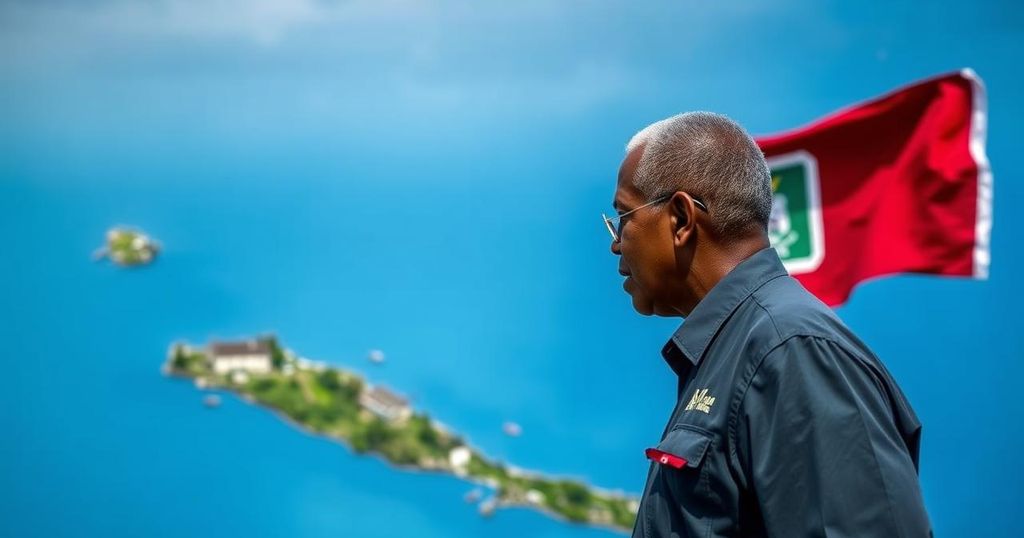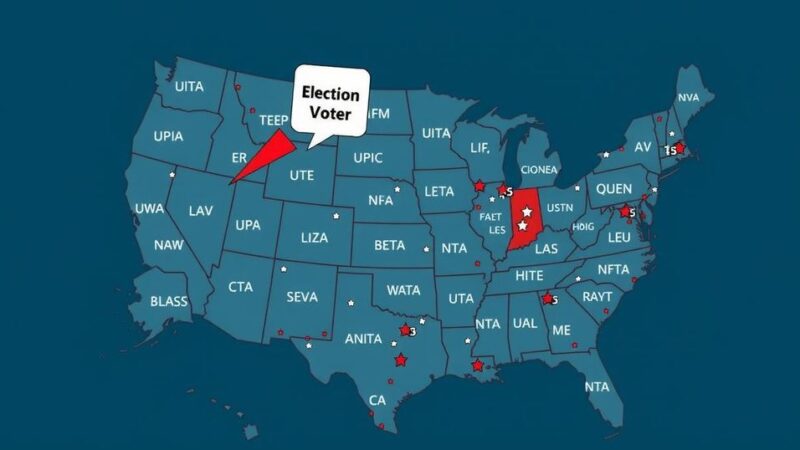Haiti’s government is experiencing a significant standoff as the Transitional Presidential Council calls for the dismissal of Foreign Minister Dominique Dupuy, citing her harsh stance against the Dominican Republic’s deportation of Haitians. Prime Minister Garry Conille refuses the demand, leading to tensions and a potential political crisis amid ongoing humanitarian issues.
A standoff has emerged within Haiti’s government as members of the ruling Transition Presidential Council demand the dismissal of Foreign Minister Dominique Dupuy due to her perceived harsh stance against the Dominican Republic’s deportation policy affecting Haitians. The council claims they have lost trust in Dupuy and have called on Prime Minister Garry Conille to replace her. However, Conille has resisted this request, asserting his authority in the matter and framing Dupuy’s recent efforts—such as acquiring military supplies and rallying international support against the Dominican Republic—as commendable. In the interim, Council President Leslie Voltaire warned Conille that the council possesses the votes to remove Dupuy and has threatened to withdraw from council meetings until she is dismissed. The situation is complicated by the absence of a functioning parliament, which traditionally holds the power to dismiss ministers. The political dynamics have further shifted since the establishment of the council, which has seen procedural rules frequently altered to cater to varying majorities. Tensions escalated as Conille presented a constitutional argument against the council’s authority, insisting that he believes Dupuy is performing well in her role. The council, not yielding, indicated their decision was final and that they would not engage in further discussions on the matter. Dupuy herself has expressed disappointment, stating, “It is unfortunate that in the midst of such a dire humanitarian crisis… the highest power of the executive would be spending time trying to target me as a member of government for no official reason that has been communicated to me yet.” Despite the mounting pressure, Dupuy has shown resolve to remain in her position while advocating for the interests of the Haitian people. Meanwhile, the various memos issued reflect a fragmented diplomatic stance, creating further uncertainty regarding Haiti’s foreign policy direction. As tensions continue to mount, Prime Minister Conille plans to convene his cabinet to introduce a resolution that denounces the Dominican Republic’s deportations as discriminatory, highlighting the divided stance within Haiti’s leadership and the broader implications for its international relations and internal governance.
Haiti’s political landscape has been marked by instability, particularly following the assassination of President Jovenel Moïse in July 2021. The establishment of a Transitional Presidential Council aimed to provide temporary governance; however, the absence of a functional parliament complicates decision-making and allows for internal conflicts such as the current demand to remove the foreign minister. Relations with the Dominican Republic have become increasingly strained, particularly regarding the latter’s deportation of thousands of Haitians, leading to an urgent humanitarian response from Haiti’s government. The council’s dynamic has also been affected by allegations of corruption among its members, presenting additional challenges to effective governance and public confidence.
The situation within Haiti’s government reflects a critical intersection of foreign relations, internal governance, and humanitarian crises. The ongoing dispute over Foreign Minister Dominique Dupuy symbolizes deeper divisions within the Transitional Presidential Council and raises questions about the future of Haiti’s governance amid serious diplomatic challenges with the Dominican Republic. As stakeholders navigate this impasse, it remains imperative for unity and coherent policy direction to safeguard the interests of the Haitian populace.
Original Source: www.miamiherald.com






